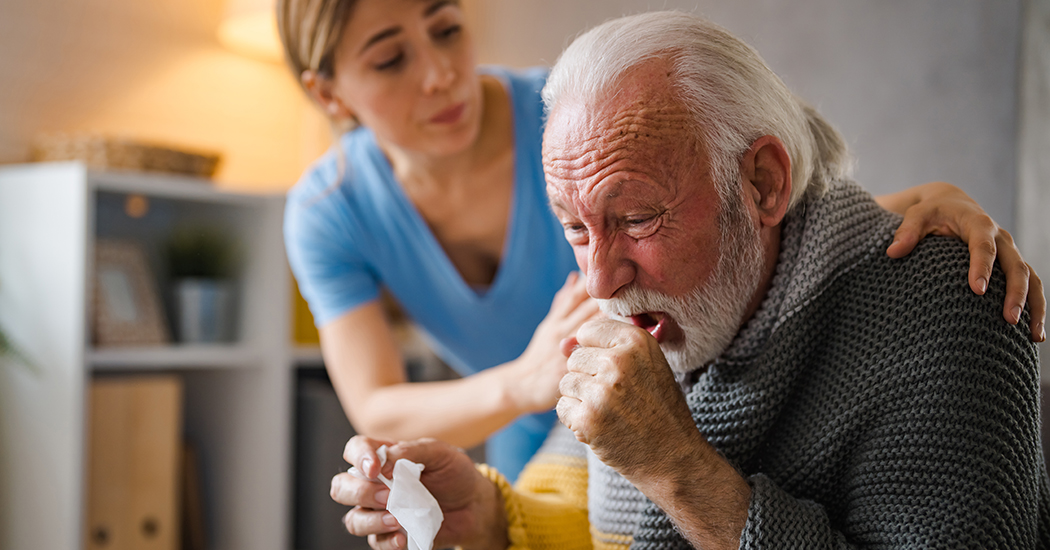
As a busy parent or caregiver, your time is valuable, and keeping your loved ones healthy is a top priority. Respiratory Syncytial Virus (RSV) is a common but potentially serious illness that affects people of all ages, especially young children and older adults. In this article, Dr. Saif Jamil helps you understand RSV, recognize symptoms, and explore prevention options to protect your family during RSV season.
What is RSV?
Respiratory Syncytial Virus (RSV) is a common virus that mainly causes lung and airway infection and breathing problems. It spreads quickly in crowded and communal areas like schools and daycares. It's one of the most common reasons why children and infants go to the doctor or hospital worldwide during cold and flu season. Almost everyone gets RSV at some point before they turn two years old. Like other viruses, RSV infections are most common from early fall to spring.
Symptoms
When someone catches RSV, it usually feels like a cold, but it can cause more serious symptoms for others. Mild RSV symptoms typically last between one and two weeks. However, the cough from RSV can stick around for several weeks, even after other symptoms are gone. Some individuals can even be infected without experiencing symptoms. The most common symptoms can include:
- A runny or stuffy nose
- Coughing
- Sneezing
- Sore throat
- Fever (but not always)
- Wheezing or difficulty breathing
Complications
Those at highest risk of developing complications from RSV are babies (under six months old), older adults, and anyone with a pre-existing lung or heart disease or immune-suppressing condition.
- Bronchiolitis: This condition is when the small airways in the lungs become inflamed and filled with mucus, making breathing very difficult.
- Pneumonia: RSV can also lead to pneumonia, an infection of the lungs.
- Asthma: Children who get severe RSV may have a higher chance of developing asthma later in life.
- Worsening of existing conditions: Anyone with a pre-existing heart or lung condition like asthma, chronic obstructive pulmonary disease, or congestive heart failure could experience these conditions intensify after getting RSV and need additional medical treatment.
- Hospitalization and death: In severe cases, people with RSV might need to go to the hospital, particularly if they are having trouble breathing or staying hydrated. Death is possible if proper care is not provided early enough in some cases.
Prevention
The very first vaccine for RSV was approved for use by the FDA in 2023. Now that there are preventative treatments to increase immunity and protect from severe infection, hospitalizations and deaths can be significantly reduced. Vaccine and monoclonal antibody treatments are beneficial for individuals who are at higher risk of serious illness from RSV.
These include:
- Older Adults: People who are 60 years or older are more likely to have severe RSV. The vaccine can help protect them from getting really sick by boosting their immune system.
- Pregnant Women: Getting vaccinated for RSV during pregnancy can help protect both women and newborn babies from RSV. Mothers pass on the antibodies they've built from the vaccine onto the baby before birth, strengthening their immunity.
- Babies at High Risk: Babies that are born during or haven’t experienced RSV season, especially those born early or with certain medical conditions, may benefit from a special RSV shot (RSV monoclonal antibody) that helps prevent severe illness.
What if you are not an older person or an infant? Most children two years and older have already experienced RSV, which means they have some immunity built up. After being infected the first time, it is rare for a healthy individual (child, teen, or adult) to experience intense symptoms in future cases; because of this, vaccination for these groups is not as critical. It is important to remember that anyone who has had RSV in the past can be infected again (just not in the same RSV season), and symptoms will be less severe.
Everyday Steps to Prevent the Spread of RSV
- Wash your hands often. Refresh yourself and your children with basic hand hygiene practices.
- Cover coughs and sneezes with sleeves or tissues.
- Regularly clean high-traffic areas such as doorknobs and countertop surfaces.
- Sanitize and clean children's toys, sippy cups, reusable snack containers, water bottles, etc. Consider sanitizing items that frequently travel from daycare or school to home.
- Avoid sharing utensils and cups with other individuals.
- Avoid others who may be sick.
RSV is a common virus that can cause mild to severe illness. RSV can lead to serious complications like bronchiolitis, pneumonia, and even death in high-risk individuals. Fortunately, vaccines are available that can help protect those most at risk. If you or someone you love is at high risk for serious RSV infection, talk to your doctor about whether the RSV vaccine is a good option.
Sources:
https://ama-assn.org/delivering-care/public-health/rsv-vaccines-questions-patients-may-have-and-how-answer
https://www.dynamed.com/condition/respiratory-syncytial-virus-rsv-infection-in-adults
https://www.dynamed.com/condition/respiratory-syncytial-virus-rsv-infection-in-infants-and-children
https://www.yalemedicine.org/news/should-you-get-the-new-rsv-vaccine
